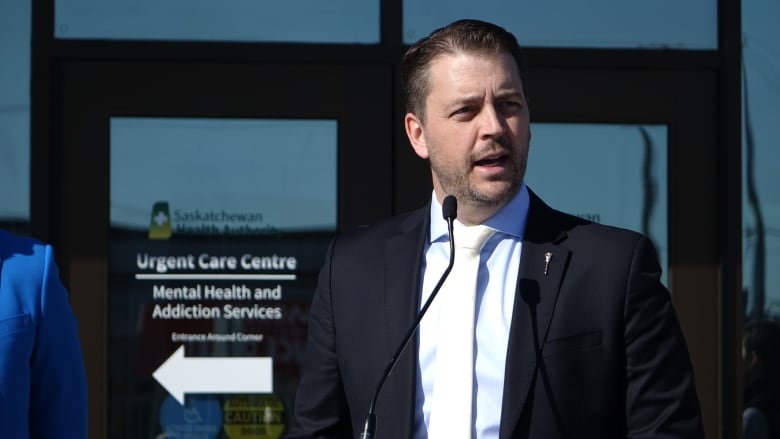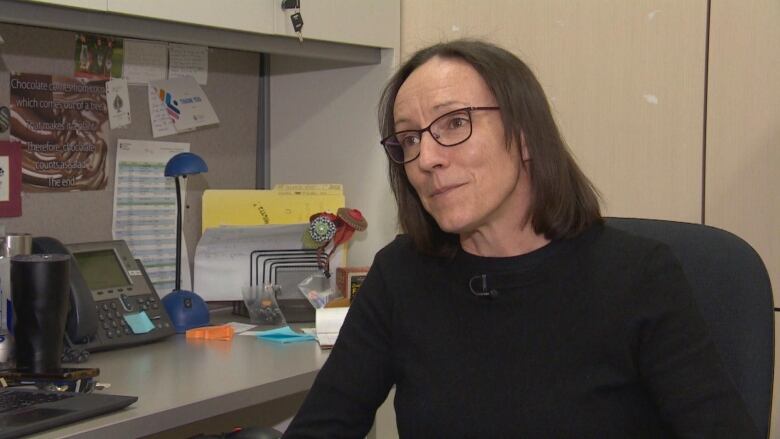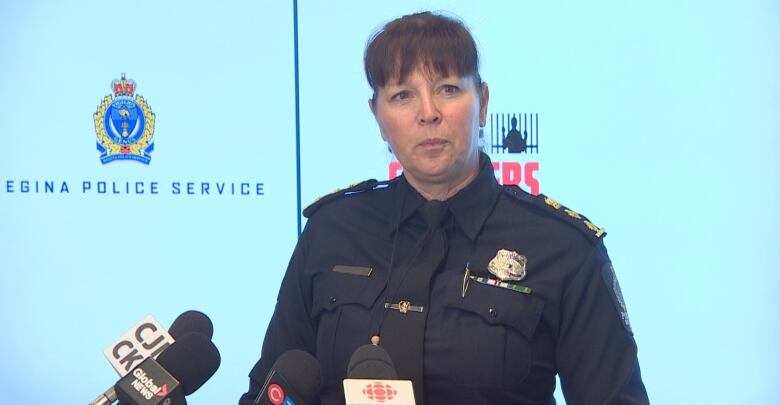Sask. ministers dub drug decriminalization 'a disaster' as B.C. seeks to roll back pilot
Health researcher stands by call for Sask. to decriminalize simple possession, accuses B.C. of 'scapegoating'

Saskatchewan's addictions and justice ministers say British Columbia's recent decision to roll back parts of its controversial drug decriminalization pilot is proof the strategy isn't a viable solution to either province's overdose crisis.
But the changes to the first-in-Canada project which decriminalized personal possession of small amounts of some drugs for adults in most public and private spaces haven't swayed some health researchers and drug policy reform advocates who say Saskatchewan should work to remove criminal penalties for simple possession.
On Friday, B.C. Premier David Eby announced his NDP government was requesting Health Canada amend the pilot to reinstate police powers to arrest people for simple possession and seize drugs in public spaces like parks, restaurants and hospitals.
Eby said police would be advised to avoid arresting people except in "extraordinary" cases, and that other jurisdictions seeking decriminalization like Toronto could learn from concerns around public drug use and safety in B.C.
Saskatchewan Minister of Mental Health and Addictions Tim McLeod saidB.C. 's backtrack isn't entirely surprising, given the province's overdose death rate has increased and remained high since the three-year pilot began in January 2023.
"[Decriminalization] is certainly not something that our government was considering and it's not something that we're considering now," McLeodsaidin an interview Monday.
"I guess if British Columbia is coming to the conclusion that we were already at, good for them."
"It's been, frankly, something of a disaster," Saskatchewan Attorney General Bronwyn Eyre told a CBC reporter when asked at an unrelated media availability in Regina on Monday.
High numbers of overdose deaths have also persisted in Saskatchewan, where the Sask. Party government is pursuing a "recovery-oriented" approach that has seen it restrict funding for some harm reduction supplies, and focus spending on expanding detox, treatment and recovery services.
"That doesn't always mean 100 per cent abstinence, but it definitely means helping people get to a point where their lives aren't totally controlled by their drug use," said Rand Teed, a drug counsellor at ROSC Solutions Group, a private addiction consulting firm that advised the Saskatchewan government.
Decriminalization used as a 'scapegoat': researcher
But a Sask. substance use expertand a harm reduction advocatesay B.C. is using decriminalization as a "scapegoat" and that decriminalization could help save lives in Saskatchewan.
Decriminalization would make it easier for people to access harm reduction and treatment services without fear of arrest, free-up police resources and keep people out of jail, according to an expert report recommending decriminalization to the Regina and Saskatoon Police Boards in 2022.

However, it can't save lives when people don't have adequate housing or access to the services and supports they need, according to report co-author Barbara Fornssler.
"Going back to a criminalized model for substance use is just going to put us back where we were, which is in the midst of a crisis with very little hope and much more stigma," Fornssler, an assistant professor at the University of Saskatchewan's school of public health, said Tuesday.
"People are not going to access any resources and we're back to that war on drugs model which has failed for 100 years."
She saidB.C.'sconcerns around public use and disorder should be taken seriously, butthat these issues can't be blamed on decriminalization alone.
"Decriminalization done right would take account of housing needs, of prescription supply or other options to access safer supply, and availability of treatment and mental health and other support services for those who need it," said Fornssler.
B.C.'s now-former chief coroner has cautioned that the increasingly potent and contaminated drug supply not decriminalization is driving the province's mounting overdose deaths. In a February interview with CBC News before she left her post, Lisa Lapointe said the backlash to decriminalization and safe supply "terrifies" her.
Kayla Demong, executive director of Prairie Harm Reduction in Saskatoon, called B.C.'s decision "reactionary" and "unfortunate" on Monday.
She said decriminalization isn't a silver bulletand that people in Saskatchewan need a "spectrum of services," including more harm reduction and safe supply.
"All of this is just about treating people with dignity and trying to keep them alive and recognizing that just because people are using substances, they don't deserve to die," said DeMong, who has been in recovery from addiction for more than 20 years.
Saskatoon, Regina police already practising 'de facto' decriminalization
Fornssler and report co-author Dr. Lori Hanson said they stand by their 2022 recommendations for Saskatchewan to look at provincewide decriminalization andtoformalize the "de facto decriminalization" theSaskatoon and Regina police forces said they were already practising.
When asked by CBC on Tuesday, Regina Police Deputy Chief Lorilee Davies said that policy "absolutely" continues.
"It's really been a push, nationwide, [that] we don't arrest and charge and criminalize people for simple possession because there is a recognition that it's a health issue," she told reporters after a police commission meeting on Tuesday, noting that police are focusing on targeting drug producers, traffickers and dealers.
The Saskatoon Board of Police Commissioners also called on the federal government to "to move forward on decriminalization legislation of simple possession of illicit drugs" in June 2022.
The board hasn't discussed the matter since, according to a Tuesday statement from Chair Shirley Greyeyes, but a spokesperson said Greyeyes would request a discussion on it at a future meeting.

With files from Dayne Patterson














_(720p).jpg)


 OFFICIAL HD MUSIC VIDEO.jpg)
.jpg)



























































































